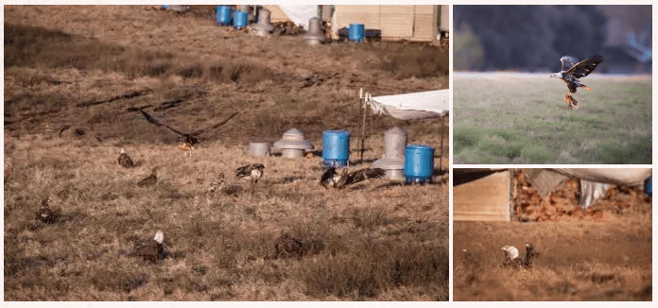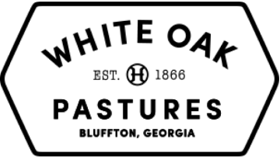All of us really revere the iconic North American predator species. We’ve got grizzly bears, timber wolves, cougars, and eagles. We name our sports teams and our Boy Scout troops after them, we see them on tee shirts, and they are all endangered or threatened.
We often hear that loss of habitat is the reason these predator species are endangered, but after causing a resurgence of bald eagles in southwest Georgia, Will Harris has another theory.
Soon after we began raising pastured poultry, we started seeing bald eagles on the farm for the first time. The eagles ate dead chickens and thinned our flock of the weaker ones. By working with nature on our farm instead of against it, we had created an environment where not only our livestock thrives, but wildlife can thrive, too. In contrast, keeping food animals inside factories starves the wildlife that depends on it.
With few other food sources nearby and our pastured poultry operation growing, more and more bald eagles made White Oak Pastures their home. Eagles began aggressively killing large numbers of healthy chickens, and we could not keep up with the losses. Eagles are an isolationist species, and overpopulation leads to fighting, rapid spread of disease, and loss of the natural ability to hunt. The eagles became overpopulated to the point that we’ve enlisted Fish and Wildlife Services to work with us on deterring the eagles using non-lethal harassment methods, to return the population on our farm to a healthy number. 7 or 8 eagles on one farm is great, but 78 is too many.
We now believe part of the demise of the iconic predator species in our country is a function of confinement animal farming which doesn’t give nature a fair opportunity to do its job. We wonder how much of a resurgence of these threatened species we would see if more farmers let their food animals out of captivity and let Mother Nature’s natural selection process work.

Photos by Backlight Photography

